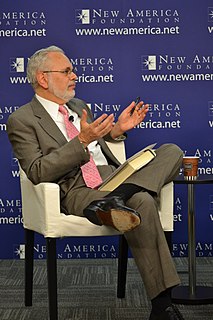A Quote by Neil deGrasse Tyson
People like it when they understand something that they previously thought they couldn't understand. It's a sense of empowerment.
Quote Topics
Related Quotes
...people will go for anything they don't understand if it's got enough hype. They want to be hip, want always to be in on the new thing so they don't look unhip. White people are especially like that, particularly when a black person is doing something they don't understand...That's what I thought was happening when Ornette hit town.
The first thing you have to do is understand what success looks like. And to understand what success looks like you have to understand the intent. If you understand that intent is to make sure the sea lines are secure, then suddenly bombing Kosovo makes sense, because you don't want Serbia to reemerge as a major power.
I'm naive. I will admit that I'm naive. There's a part of me, honestly, to the depths of my soul, that doesn't understand why people hate this country. Intellectually, I understand it. I understand the politics of grievance, and I understand the way people have been taught, but compared to every other place human beings have lived before this country and since it was founded, it makes no common sense to hate this place, and yet people do.
In order to understand people, we have to understand their way of life and approach. If we wish to convince them, we have to use their language in the narrow sense of the mind. Something that goes even much further than that is not the appeal to logic and reason, but some kind of emotional awareness of the other people.
I would then say that there are two kinds of feeling. The first is to feel in the sense of concentrating your emotions on something immediately available for your understanding: you make your understanding out of the emotions you have about it. The second is to feel in the sense of being affected without trying to understand: something is felt, you do not know what, and it is more important to feel it than to try to understand it, since once you try to understand it you no longer feel it.
Nations are like people. Once you understand the interactions between nations, it's easy to understand why things are done, in terms of foreign policy, in a certain way. But nations are not like people in the sense that we are cumulatively represented by others - and their interpretations of what our interests are may not be the same as what they really are. And that's what's dangerous, even in a democracy.




































